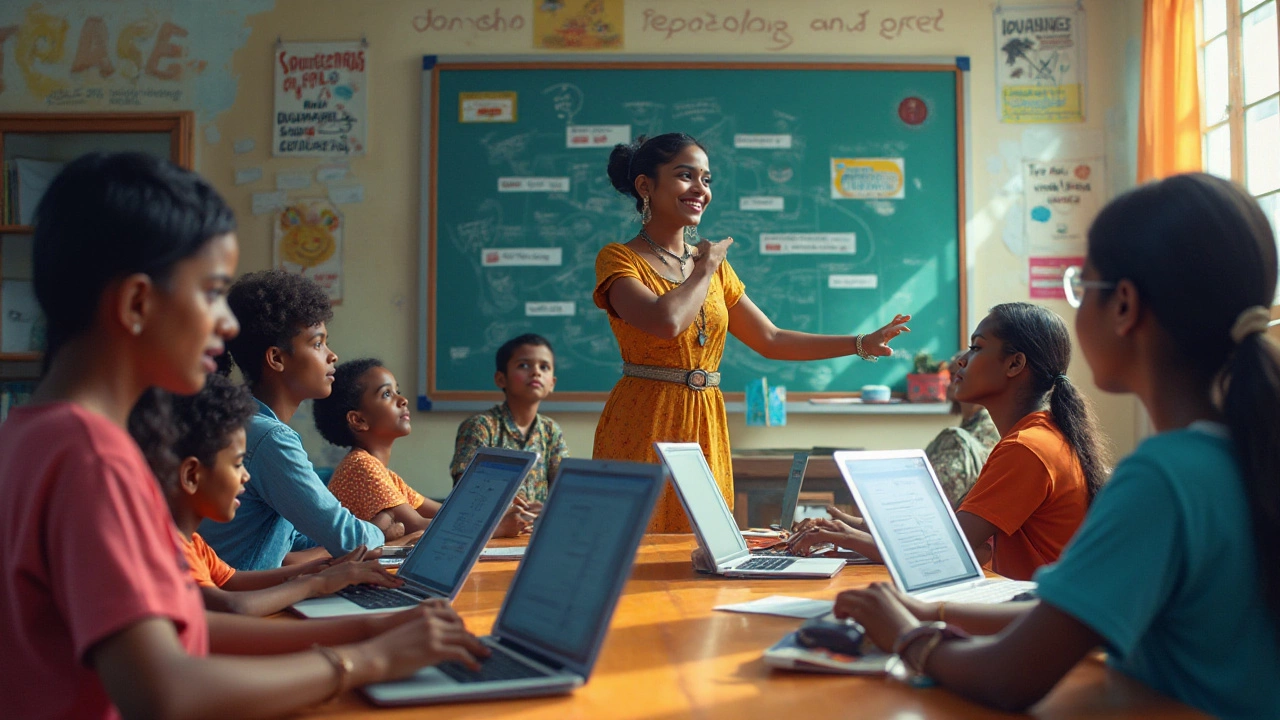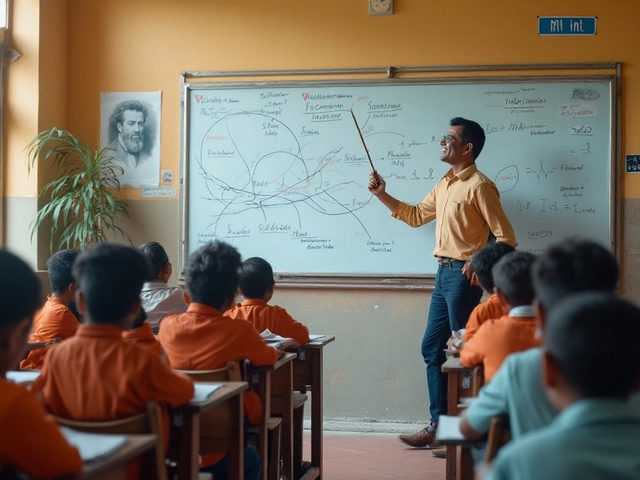
In recent years, coding has become an essential skill, not just for tech professionals but for anyone seeking to thrive in a modern job market. Despite its growing importance, many learners find themselves hitting a wall when trying to master programming languages. A blend of hurdles, from mental roadblocks to inadequate teaching, can make the coding journey daunting.
Understanding why people fail to learn coding is a crucial first step towards overcoming these challenges. This article delves into the common pitfalls and offers practical tips to navigate through them, aiming to turn potential failures into stepping stones for success. Whether you're a beginner or a seasoned programmer, gaining insight into these obstacles can enhance your approach and boost your learning journey.
Common Misconceptions
When it comes to learning how to code, many learners are intimidated by a host of myths and misconceptions that cloud the real nature of programming. One widely held belief is that coding is an inscrutably difficult skill that only a select group of "geniuses" can master. In reality, coding is a skill much like any other—it takes time, patience, and practice. Another misunderstanding is that people often think they need to be mathematical whizzes to succeed. While a logical mind helps, coding is about problem-solving and creativity. It’s like learning a foreign language at first, where syntax and structure need to be mastered, which anyone can do through consistent practice.
There's also the idea that one must learn everything at once to succeed. This couldn't be further from the truth. The world of programming is vast, and even seasoned coders are continuously learning and adapting to new technologies. The perception that all coding languages are uniformly difficult often deters newcomers. Yet, many languages are designed keeping beginners in mind, like Python, known for its readability and straightforward syntax. It's crucial to dispel these myths early on, so learners don't become discouraged when progress seems slow. As Neil deGrasse Tyson once said,
"The great thing about science is that it’s true whether or not you believe in it."The same can be said about coding—the barriers are often more psychological than technical.
Moreover, new learners often underestimate the importance of debugging and testing, which are core components of the coding process. Some may believe that writing code is solely about crafting elegant lines of text, while, in reality, refining and troubleshooting are integral to becoming proficient. To address this, it's beneficial to embrace failure as part of the learning curve. Little mistakes, like forgetting a semicolon or misplacing a bracket, are learning opportunities that help reinforce language syntax. Anyone can develop successful coding habits by practicing these elements in manageable chunks.
Another common trap is thinking that coding alone, without collaboration, is enough to advance one's skills. The modern tech world thrives on open-source projects, where individuals contribute and learn from each other's code. Joining coding communities and participating in collaborative platforms like GitHub can significantly enhance understanding and application. These resources can provide real-world context to theoretical knowledge, making the learning experience more comprehensive and engaging. To demystify coding, encourage breaking down complex problems into smaller, manageable ones and seeking guidance from peers whenever possible.
Learning Environment
The environment in which one learns to code is a pivotal factor in determining their success. A supportive and resource-rich setting can significantly enhance a learner's ability to grasp complex programming concepts. On the flip side, a poorly structured environment can lead to confusion and frustration. It's not just about having the right physical space, but also about the atmosphere and resources that encourage continuous growth and exploration. In many cases, learners find themselves in situations where the lack of clear guidance and feedback hampers their progress. This often results in feeling stuck when encountering tough programming problems.
Within a good learning environment, access to resources such as current coding tutorials, forums, and strong mentorship opportunities can make a significant difference. Many successful coders attribute their growth to communities that offer mutual support and knowledge sharing. As one jumps into the world of coding, nurturing a spirit of collaboration becomes crucial. Notably, many educational platforms have shifted to models that prioritize interactive learning environments over traditional lecture-based settings. Places like Codecademy and freeCodeCamp have taken innovative approaches, offering project-based learning and peer support systems, allowing learners to interact with real-world challenges while receiving timely feedback.
An intriguing fact about successful coding education is the role of active engagement over passive consumption. As per a report from the National Bureau of Economic Research, active participation can boost learning retention rates by as much as 25%. The report highlights how conventional classrooms are increasingly integrating interactive technologies to bolster student engagement.
"The best way to learn something is to create your understanding and then be able to teach it to others," suggests education expert Ken Bain.The power of teaching others can solidify your knowledge and expose gaps that you weren’t aware of. Therefore, an environment that promotes collaboration and idea-sharing is invaluable.
Moreover, the digital age has ushered in an unprecedented array of online tools that revolutionize the learning experience. Platforms hosting virtual coding boot camps and hackathons can simulate real-world coding environments, offering learners the chance to solve large-scale problems and work in teams globally. Table 1 below illustrates the effectiveness of various learning approaches based on numerous studies conducted over the last decade.
| Learning Approach | Effectiveness (% Increase) |
|---|---|
| Collaborative Workshops | 40% |
| Project-Based Learning | 50% |
| Traditional Classroom | 20% |
Integrating these strategies into your coding studies may not only enhance understanding but also make the journey more enjoyable. The significance of a well-structured learning environment cannot be overstated. It shapes not just the capabilities of learners but also their willingness to persevere through inevitable challenges. As we explore why people fail to learn coding, strengthening the fabric of educational ecosystems remains at the forefront of achieving personal and collective success in programming.

Effective Practice Strategies
Mastering coding isn't just about understanding the syntax; it's about embedding the logic deep within your cognitive processes. Many beginners struggle because they tackle coding as a purely intellectual exercise rather than a skill honed through repetition and practice. The distinction between knowing the path and walking the path, as Morpheus famously said, applies significantly here. One effective approach is to engage in deliberate practice, which is characterized by focused and structured activities specifically designed to improve performance.
Creating a habit of consistency is vital when learning to code. Programming should become a regular part of your routine, not an occasional activity when time allows. This consistency transforms the previously foreign languages of Python or JavaScript into familiar territories. A useful strategy is the Pomodoro Technique, where you dedicate 25-minute blocks of focused coding followed by a short break. This time management method keeps your mind fresh and helps you retain more information than one might assume.
Connecting theory with practice is another key aspect. Simply reading a book on Python won't make you a programmer. You need to apply what you've learned by working on real-world projects or writing programs that interest you. This could be a small web app for organizing tasks or automating a mundane process in your daily routine. Projects afford the application of concepts in a practical context, solidifying your understanding while boosting your confidence.
Seeking feedback is crucial for growth. Whether it's an instructor, a mentor, or a community of peers, having someone review your code can provide valuable perspectives that you may overlook. Code reviews can highlight areas for improvement and offer solutions that you might not have considered. Engaging with the online coding community also opens doors to collaboration, new insights, and motivation.
"The only way to learn a new programming language is by writing programs in it," says Dennis Ritchie, the creator of the C programming language. His wisdom underscores the importance of hands-on experience, reinforcing the idea that exposure through continuous practice can demystify complex coding concepts.Another strategy involves leveraging online platforms that offer coding challenges and exercises tailored to varying levels of expertise. Websites such as Codecademy, LeetCode, and HackerRank provide a plethora of tasks that can reinforce the concepts you learn, from data structures to algorithmic thinking. These platforms often offer immediate feedback, allowing you to rectify mistakes and understand them thoroughly.
Peer programming can also be beneficial. When you code with a partner, you both contribute to solving the same problem, which helps in collective problem solving and knowledge sharing. You're able to view how someone else thinks through the same issue, providing new angles and potentially more efficient solutions. It's an enlightening process where the notion of 'seeing one, doing one, teaching one' takes on practical significance.
Finally, embrace the inevitable frustrations and roadblocks as part of your learning to code journey. These are not signs of failure but rather milestones of progress. Each bug you solve, every time you come up against a wall and find a way over, around, or through it, you're reinforcing your understanding and enhancing your skills. The path to becoming a proficient coder is less about the destination and more about the resilience cultivated along the way.
Overcoming Challenges
Learning to code can seem like tackling a formidable mountain, especially when encountered with initial obstacles and complex concepts. The good news is that these challenges can be approached with strategies designed to enhance understanding and retention. One effective method is breaking down problems into smaller, manageable parts. This technique not only simplifies the issue but also allows learners to gradually build confidence as each segment is mastered individually. It's crucial when dealing with the intricacies of syntax and logic within any coding language.
Another key factor is setting realistic learning goals. Too often, new coders set expectations that are far too high, leading to disappointment and frustration when results don’t come as quickly as anticipated. By establishing achievable milestones and celebrating small victories, it can help sustain motivation through the demanding learning process. Different platforms and resources can suggest daily or weekly goals that align with specific skills or concepts. This structured approach can pave the way to more effective and enjoyable learning.
Utilizing Available Resources
In the digital era, a wealth of available resources can serve as crucial aids for those learning to code. Interactive platforms like Codecademy, free courses offered by prestigious institutions through Coursera, and a myriad of YouTube tutorials provide learners with diverse perspectives and teaching styles. Each individual can find a resource that resonates with their personal learning preference, which makes the journey far less tedious and daunting.
Engaging with coding communities, both online and locally, offers an additional layer of support. Being part of a community means that help is often just a post away, with seasoned developers gladly sharing tips and troubleshooting advice. It can be incredibly reassuring to know that others have faced similar roadblocks and successfully navigated past them."The beautiful thing about learning is that no one can take it away from you."
Developing a Growth Mindset
Embracing a growth mindset can be transformative for aspiring programmers. Instead of seeing mistakes as failures, viewing them as opportunities for growth can foster a happier and more productive learning experience. As one navigates through mistakes, vital lessons are learned which contribute to deeper understanding over time. Industry leaders often emphasize the importance of persistence. Colloquially, the tech community often says that the best way to learn coding is through 'failing fast and often', iterating upon failures rapidly, and emerging more skilled than before.
In summary, while the path to learning to code may be fraught with difficulties, employing strategic methods and maintaining a positive outlook can transform challenges into valuable learning experiences. By embracing a step-by-step approach, engaging with diverse resources, and fostering a mindset that values progress through setbacks, anyone can acquire the foundational skills necessary to thrive in the world of programming.





